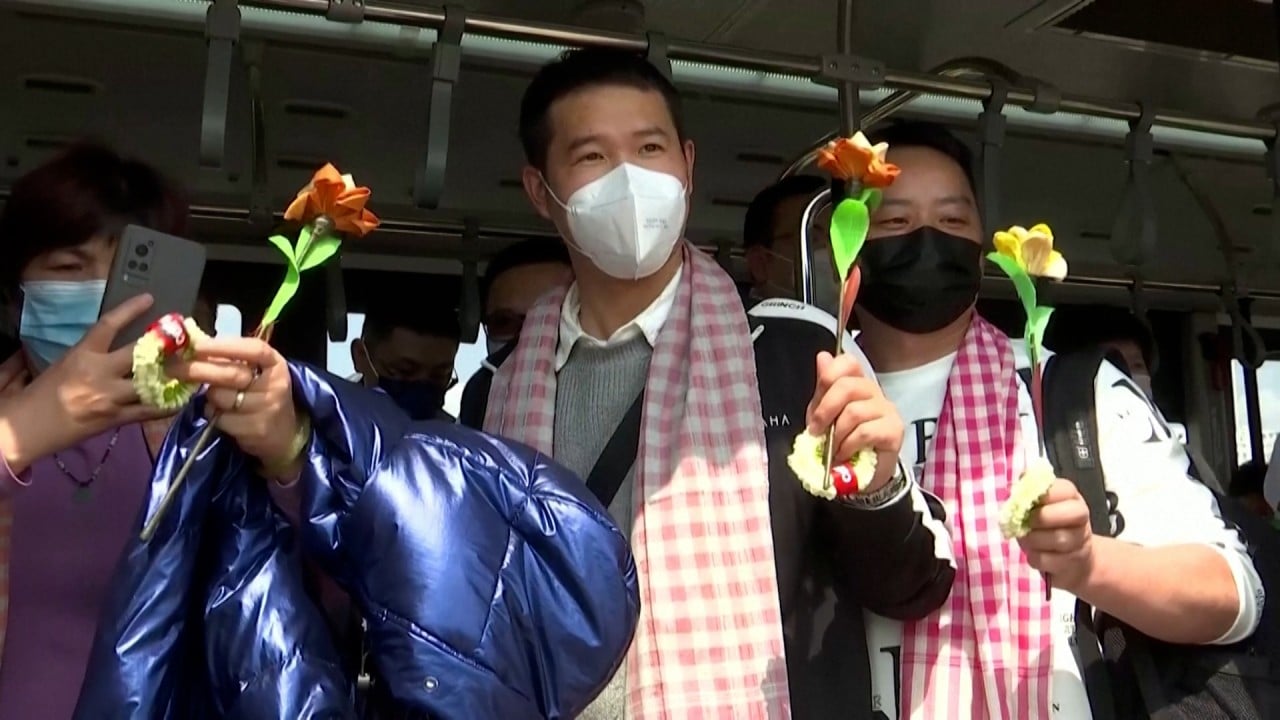
Covid-19 in China: time to limit mask mandates, respiratory expert Zhong Nanshan says
- Zhong says extended use of face coverings does not encourage development of natural resistance to disease, particularly in children
- Any future coronavirus waves likely to be local outbreaks, he says
Zhong also said mask wearing should be scrapped in general from April, saying masks were necessary only in a select group of public places such as hospitals.
“If people wear a mask for a long time – especially children ... it is not conducive to the development of natural resistance to disease,” Zhong said.
Masks are no longer mandatory at universities, primary and middle schools and kindergartens, according to a directive jointly issued last month by the Ministry of Education, the National Health Commission and the National Administration of Disease Control and Prevention
Some cities, including Shanghai, Guangzhou, Chengdu and Nanjing, no longer require people to wear masks on the subway, according to media reports.
Addressing the Cross-straits Medicine Exchange Association forum in Hangzhou by video link a day later, Zhong said that though severe cases were rare, there was still a high chance of people being infected with XBB after contracting other variants.
Zhong said studies indicated that inactivated vaccines – the type widely used in China – had a good protective effect against severe cases of BA.5 but less so against infection from XBB.
Noting two studies from Portugal and Singapore, Zhong said the research showed that up to 80 per cent of vaccinated people who were infected with Covid-19 were protected for six to eight months from contracting BA.5 again but protection dropped against XBB by at least half.
“Policymakers still need to consider intervening with a bivalent vaccine corresponding to the Omicron variant to maintain a high level of immunity in the population against Covid infection,” he said.
The CDC has not said how many cases the subvariant accounts for but the number of Covid infections in general is low compared with the massive wave that rolled across the country in December, infecting up to 80 per cent of the population, according to some estimates.
The CDC said that on Thursday 2,967 people who had nucleic acid tests and 115 who reported rapid antigen test results, were positive for the virus.

.JPG?itok=zUDwoZRB&v=1701240446)
